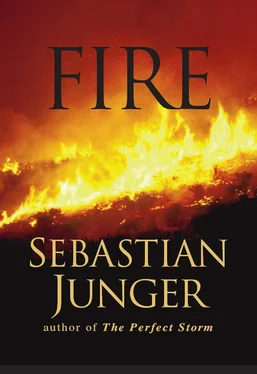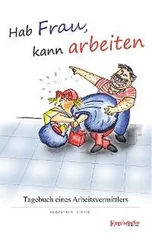THE FORENSICS OF WAR
1999
Homo homini lupus. (Man is a wolf to man.)
—PLAUTUS,
Asinaria
No one knows who he was, but he almost got away. He broke and ran when the Serbs started shooting, and he made it to a thicket before the first bullet hit him in the left leg. It must have missed the bone, because he was able to keep going—along the edge of a hayfield and then into another swath of scrub oak and locust. There was a dry streambed in there, and he probably crouched in the shadows, listening to the bursts of machine-gun fire and trying to figure out a way to escape. The thicket stretched uphill, along the hayfield, to a stand of pine trees, and from there it was all woods and fields leading to the Albanian border. It didn’t offer much of a chance, and he must have known that.
He tied a sweater around the wound in his thigh and waited. Maybe he was too badly hurt to keep moving, or maybe he didn’t dare because the Serbs were already along the edge of the field. Either way, they eventually spotted him and shot him in the chest, and he fell backward into the streambed. His killers took his shoes, and—months later, after the war ended—a fellow Albanian took his belt buckle and brought it to the authorities in Gjakovë. It was the only distinctive thing on him, and there was a chance that someone might recognize it.
I saw the dead man in late June, two weeks after NATO had taken Kosovo from the Serbs. It was a hot day, and my photographer and I stood peering at his corpse, in the same mottled shade that the man had tried to hide in. His skull was broken open, and his jawbone was a short distance away. The sweater was still tied around his leg. I had walked into the thicket braced for the worst, but he wasn’t particularly hard to look at. He’d been killed two months earlier—on April 27, around midday—and he looked less like a person than a tipped-over hatrack draped in blue jeans and a cheap parka. The young man who had led us there leaned on a shepherd’s crook and told us that the dead man was in his early twenties and had probably come from a nearby village. The Serbs had swept the valley from Junik to Gjakovë in retaliation for an attack by the Kosovo Liberation Army, which for two years has fought for independence for Kosovo. They’d taken the men from more than half a dozen little villages and gunned them down in a field outside Meja. Then they came back in the middle of the night to bury them. They missed a few.
The shepherd identified himself as Bashkim; he was a handsome blond kid with a wispy goatee and a shy smile that never left his face. “They came at five A.M.—not shooting, just yelling,” Bashkim said. “They made two hundred people lie down against a compost heap, piled cornhusks on them, and then machine-gunned them. Then they set them on fire…. It was local militia from Gjakovë. They were wearing green camouflage and black ski masks. One of them was called Stari; all the women saw him. They recognized him from Gypsy Road, about five kilometers from here.”
Meja was just a scattering of tile-roofed farmhouses along a dirt road in the middle of a broad agricultural valley. Wheat and hayfields gave way to brush-covered hills and then the Koritnik Mountains, which run along the Albanian border. Bashkim had escaped the roundup of men in the valley because he was in an isolated house that the Serbs missed. While telling the story, he seemed undisturbed by the massacres, his own close call, or even the body at his feet. He just kept smiling and smoking the American cigarettes we offered him. After twenty minutes or so, he led us back into the hot sun of the hayfield and past the compost heap where the men had been shot. There was a human leg in the grass, and then another leg, and then more remains in a ditch. They were harder to identify. Stuck into the compost heap was an old umbrella. “Why is that there?” I asked.
“It was found near one of the bodies,” Bashkim said. “Maybe someone will recognize it and know who he was.”
The worst of the violence didn’t come to southwestern Kosovo until the evening of March 24, when NATO jets streaked overhead on their way to bomb command and control targets in Serbia. Within hours Serb special police, soldiers, and hastily deputized militia units were walking through the streets of nearby Gjakovë, pumping incendiary rounds, known locally as butterflies, into houses and storefronts in the Albanian part of town. When the buildings finished burning, the Serbs knocked the walls over with bulldozers and then used Gypsies to clear the rubble from the streets so that they were passable for tanks. Anyone who stood around and watched was shot.
There was little the KLA could do but hide in the hills and wait for it to be over. In two years of fighting, the KLA never won a battle or held a town for long, but it did know how to ambush. And in mid-April, just outside Meja, it pulled off an ambush that would bring the full wrath of the Serbs down on the valley.
Its target was a Serb commander named Milotin Prasović, who was particularly loathed by the local Albanians. A week or so earlier, Prasović had driven through Meja warning the residents that he was going to return to collect all the weapons in town, and if there weren’t any for him, he’d burn their houses down. True to his word, he came back in a brick-red Audi filled with police. They drove through town, shot into the air, turned around, and drove straight into a KLA ambush. The first rocket-propelled grenade blew the right rear door off. That was followed by another round and sheets of automatic-weapons fire. Everyone in the car was killed except for Prasović, who managed to dive out of his seat and start shooting back from the edge of the road. It was over within seconds; the KLA shot him down from their hiding place and then retreated into the hills above town.
The retaliation, when it came, was swift and implacable. Shortly before dawn on April 27, according to locals, a large contingent of Yugoslav troops garrisoned in Junik started moving eastward through the valley, dragging men from their houses and pushing them into trucks. “Go to Albania!” they screamed at the women before driving on to the next town with their prisoners. By the time they got to Meja they had collected as many as three hundred men. The regular army took up positions around the town while the militia and paramilitaries went through the houses grabbing the last few villagers and shoving them out into the road. The men were surrounded by fields most of them had worked in their whole lives, and they could look up and see mountains they’d admired since they were children. Around noon the first group was led to the compost heap, gunned down, and burned under piles of cornhusks. A few minutes later a group of about seventy were forced to lie down in three neat rows and were machine-gunned in the back. The rest—about thirty-five men—were taken to a farmhouse along the Gjakovë road, pushed into one of the rooms, and then shot through the windows at point-blank range. The militiamen who did this then stepped inside, finished them off with shots to the head, and burned the house down. They walked away singing.
By conservative estimates, the Serbs killed at least ten thousand people in Kosovo. There are so many bodies—both human and animal—lying around the countryside that much of the rural water supply is contaminated. There are parts of Kosovo where not one village has been spared, and there are villages where not one house has been left standing. In the Decani district, bodies have been dumped in the wells of thirty-nine of forty-four villages surveyed. When NATO tanks rumbled into Kosovo on June 12, they found a level of destruction that hadn’t been seen in Europe since World War II.
Читать дальше












